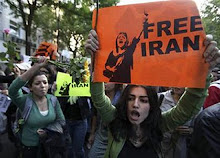Vergangenes Jahr habe ich mich an dieser Stelle Herbert Spencer als "Sozialdarwinisten" (eigentlich Soziallamarckianer) gewidmet; diesmal gehe ich zum politischeren Teil des Buches Social Statics (1851) über, nämlich dem 24. Kapitel, in welchem sich Spencer dem auch heute noch aktuellen Thema der Trennung zwischen Kirche und Staat widmet:
XXIV. Religious establishments.
§ 1.
As a matter of routine, it is needful here to point out what the reader will have inferred from Chap. XXII., that, by devoting a portion of its revenues or a part of the nation’s property to the propagation of Christianity or any other creed, a government necessarily commits a wrong. If, as with ourselves, such government forcibly takes a citizen’s money for the support of a national church, it is guilty of infringing the rights it ought to maintain—of trespassing upon that freedom to exercise the faculties which it was commissioned to guard. For, as already shown, by diminishing a subject’s liberty of action more than is needful for securing the remainder, the civil power becomes an aggressor instead of a protector. If, on the other hand, the right to ignore the state is recognised, as, in considering the question abstractedly, we must suppose it to be, then, by insisting upon conditions which drive some men to abandon its aid, and which unnecessarily restrict the freedom of those who do not, the state fails to that extent in discharging its duty. Hence, specifically applying the principle lately set forth in general terms, we find that a government cannot undertake the teaching of a religious faith without either directly reversing its function, or partially incapacitating itself for the performance of that function.
§ 2.
In the conduct of English churchmen we have a curious illustration of the way in which men will re-adopt, when it is thinly disguised, a belief they had indignantly cast from them. That same Romish dogmatism, against which our clergy exclaim with such vehemence, they themselves defend when it is exercised on behalf of their own creed. Every state-church is essentially popish. We also have a Vatican—St. Stephen’s. It is true that our arch-priest is a composite one. It is true that with us the triple tiara is separated into its parts—one for monarch, one for peers, and one for commons. But this fact makes no difference. In substance, popery is the assumption of infallibility. It matters not in principle whether this assumption is made by one man, or by an assembly of men. No doubt the astounding announcement—“You must believe what we say is right, and not what you think is right,” comes less offensively from the lips of a parliamentary majority than from those of a single individual. But there still arises the question—By what authority do these men assert this? Whence do they derive their infallibility?
That in establishing any religion a government does claim to be infallible, scarcely needs proof. Before a church organization can be set to work, a distinct understanding as to a what it is to do must be arrived at. Before state-paid ministers can be set to preach, it must first be decided what they are to preach. And who is to say? Clearly the state. Either it must itself elaborate a creed, or it must depute some man or men to do so. It must in some way sift out truth from error, and cannot escape the responsibility attending this. If it undertakes itself to settle the doctrines to be taught, it is responsible. If it adopts a ready-made set of doctrines, it is equally responsible. And if it selects its doctrines by proxy, it is still responsible; both as appointing those who chose for it, and as approving their choice. Hence, to say that a government ought to set up and maintain a system of religious instruction, is to say that it ought to pick out from amongst the various tenets that men hold or have held, those which are right; and that, when it has done this—when it has settled between the Roman Catholic, the Greek, the Lutheran, and the Anglican creeds, or between the Puseyite, High Church, and Evangelical ones—when it has decided whether we should be baptized during infancy or at a mature age, whether the truth is with Trinitarians or Unitarians, whether men are saved by faith or by works, whether pagans go to hell or not, whether ministers should preach in black or white, whether confirmation is scriptural, whether or not saints’ days should be kept, and (as we have lately seen it debating) whether baptism does or does not regenerate—when, in short, it has settled all those controversies which have split mankind into innumerable sects, it ought to assert that its judgment is incapable of error—is unquestionable—is beyond appeal. There is no alternative. Unless the state says this, it convicts itself of the most absurd inconsistency. Only on the supposition of infallibility can its ecclesiastical doings be made to seem tolerable. How else shall it demand rates and tithes of the dissenter? What answer can it make to his expostulations? “Are you quire sure about these doctrines of yours?” inquires the dissenter. “No,” replies the state; “not quite sure, but nearly so.” “Then it is just possible you may be wrong, is it not?” “Yes.” “And it is just possible that I may be right, is it not?” “Yes.” “Yet you threaten to inflict penalties upon me for nonconformity! You seize my goods; you imprison me if I resist; and all to force from me the means to preach up doctrines which you admit may be false, and by implication to preach down doctrines which you admit may be true! How do you justify this?” No reply. Evidently, therefore, if the state persists, the only position open to it is that its judgment cannot be mistaken—that its doctrines cannot be erroneous. And now observe, that if it says this, it stands committed to the whole Roman Catholic discipline as well as to its theory. Having a creed that is beyond the possibility of doubt, and being commissioned to disseminate that creed, the state is in duty bound to employ the most efficient means of doing this—is bound to put down all adverse teachers, as usurping its function and hindering the reception of its unquestionable doctrine—is bound to use as much force as may be needful for doing this—is bound, therefore, to imprison, to fine, and if necessary, to inflict severer penalties, so that error may be exterminated and truth be triumphant. There is no half-way. Being charged to put men in the way to heaven, it cannot without in permit some to be led the other way. If, rather than punish a few on earth, it allows many to be eternally damned for misbelief, it is manifestly culpable. Evidently it must do all, or it must do nothing. If it does not claim infallibility, it cannot in reason set up a national religion; and if, by setting up a national religion, it does claim infallibility, it ought to coerce all men into the belief of that religion. Thus, as was said, every state-church is essentially popish.
§ 3.
But there has been gradually dawning upon those who think, the conviction that a state-church is not so much a religious as a political institution. “Who does not see,” inquires Locke, speaking of the clergy, “that these men are more ministers of the government than ministers of the gospel? “Probably in Locke’s time there were few who did see this; but there are now many. Nor, indeed, is the fact altogether denied, as you shall hear from some politic supporter of religious establishments during an after-dinner confidence. “Between ourselves,” will whisper such an one, “these churches and parsons, and all the rest of it, are not for sensible men, such as you and I; we know better; we can do without all that; but there must be something of the kind to keep the people in order.”(1) And then he will go on to show what influential restraints religious services are; how they encourage subordination and contentment; and how the power which the clergy obtain over their parishioners strengthens the hands of the civil ruler. That some such view widely prevails may be gathered from the acts and proposals of our statesmen. How otherwise can we understand that avowed willingness in the political leaders of all parties to endow the Roman Catholic Church in Ireland if the religious public of England would let them? Or what but a political motive can that States’ lieutenant—the East India Company—have for giving an annual subsidy of 23,000 rupees to the temple of Juggernaut, reimbursing itself by a tax upon the pilgrims? Or why else should the Ceylon government take upon itself to be curator of Buddha’s tooth, and to commission the Buddhist priests(2) ?
§ 4.
Of the clergy who, on the other hand, commonly advocate a state-church as being needful for the upholding of religion, it may be said that by doing this they condemn their own case, pass sentence upon their creed as worthless, and bring themselves in guilty of hypocrisy. What! will they allow this faith, which they value so highly, to die a natural death if they are not paid for propagating it? Must all these people, about whose salvation they profess such anxiety, be left to go to perdition if livings, and canonries, and bishoprics, are abolished? Has that apostolic inspiration, of which they claim to be the inheritors, brought with it so little apostolic zeal that there would be no preaching were it not for parsonages and tithes? Do they who, on ordination, declared themselves “inwardly moved by the Holy Ghost,” now find that they are inwardly moved only by the chink of gold? This would be called slander coming from any but themselves. And then their flocks—what say they of these? Do these care so little for the faith they have been taught, that its maintenance cannot be entrusted to them? After centuries of church-culture, has Christianity got so little root in men’s hearts that but for government watering-pots it must wither away? Are we to understand that these perpetual prayers and sacraments, these homilies and exhortations, these visitings and scripture-readings, have not even generated as much enthusiasm as can keep itself alive? Have ten thousand sermons a week done so little that the hearers will not contribute a sum sufficient for the sustentation of a ministry? Why, if this be true, what is the system good for? These advocates do but open their briefs, and then straightway argue themselves out of court. They labour to prove either how powerless is the faith they teach, or how miserably they teach it! The sum and substance of their plea for the state propagation of this creed is, that it has failed in animating its ministers with its own spirit of self-sacrifice, and failed to arouse in its devotees a spark of its own generosity!
§ 5.
It is needless, however, in this year of grace 1850, with its Gorham controversies and Puseyite divisions, with its Romish and Rationalist secessions, with confusion inside the church, and a hostile association outside—to debate the question at greater length. Events are proving to most of the reflective—even to many of the clergy themselves—that a state-support of any particular faith is wrong, and that in England at least, it must shortly cease. For those who do not yet see this there are already volumes of argument to which addition is almost superfluous. The conclusions above come to, that the state cannot establish a religion without assuming infallibility, and that to argue an establishment of it needful is to condemn the religion itself, will sufficiently enforce, for present purposes, our abstract proposition.
(1)The writer has himself been thus addressed.
(2)See letter of Sir Colin Campbell to Lord Stanley, May 2, 1845.










Keine Kommentare:
Kommentar veröffentlichen